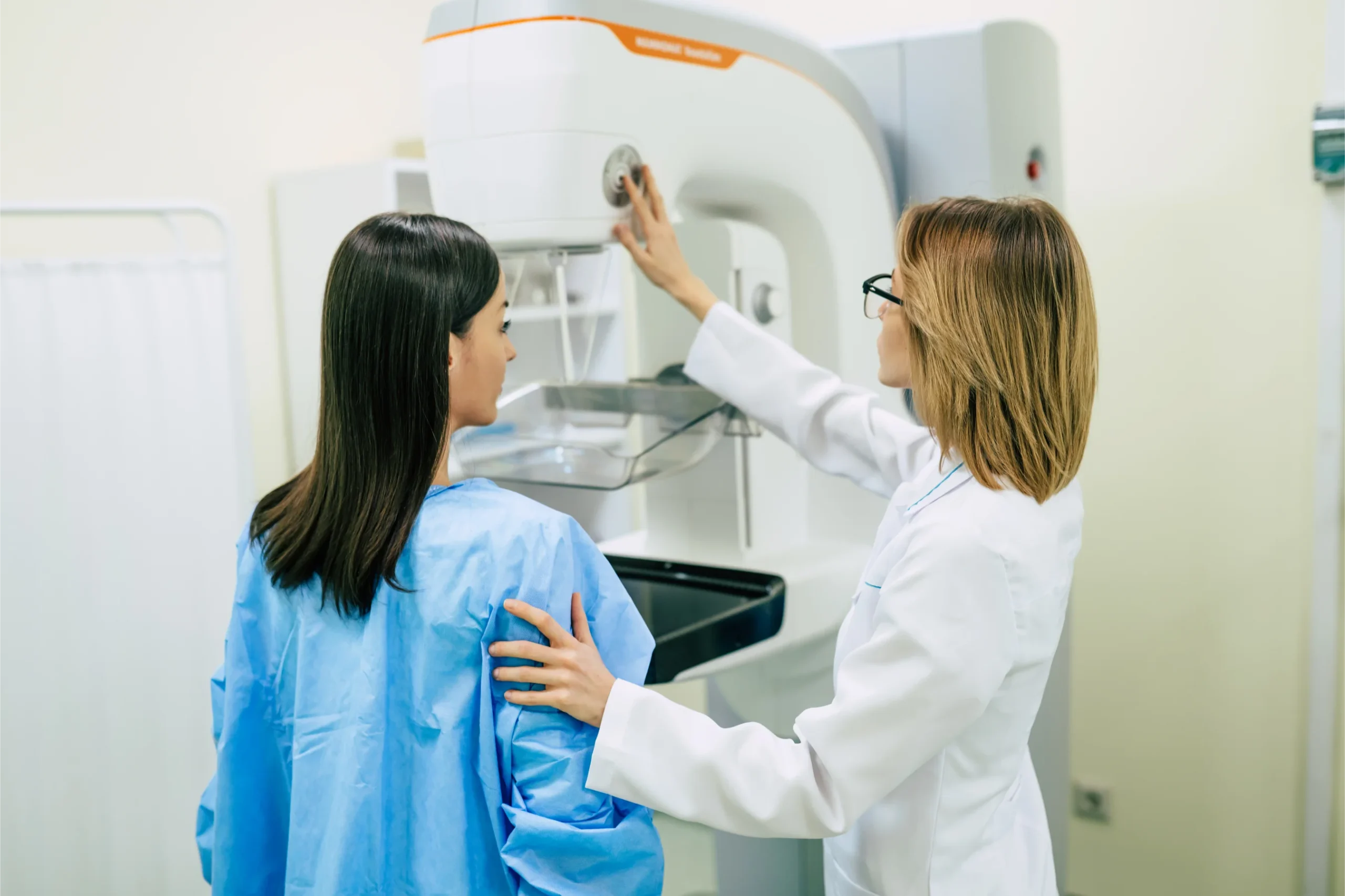
Medical Weight Loss Explained
A lot is said about medical weight loss but we are here to debunk the myths for you.
Imaging Services > Mammogram

Find Out More


A mammogram is a diagnostic X-Ray test used for the early detection of breast cancer. It can detect cancers that are too small to see or feel, or are in an early stage and thus not causing any symptoms. The earlier the cancer is caught, the less likely it is that chemotherapy or a mastectomy will be needed.
Breast screening is advised from a woman’s 50th birthday onwards, but breast changes or lumps can occur at any age. If you notice anything unusual, it is important to speak to a doctor, who can help with diagnosis and ease any concerns.

Breast cancer develops in the cells of the breast and is far more common in women than in men. It includes various types with distinct characteristics. Ductal Carcinoma In Situ (DCIS) is a non-invasive form where abnormal cells are confined to the lining of a breast duct. Invasive Ductal Carcinoma (IDC), the most common type, involves cancer cells spreading beyond the ducts into other breast tissue.
Invasive Lobular Carcinoma (ILC) starts in the milk-producing glands (lobules) and extends to nearby tissues. Triple-Negative Breast Cancer lacks oestrogen, progesterone, and HER2 receptors, making it harder to treat. Conversely, HER2-Positive Breast Cancer is characterised by high levels of the HER2 protein, which promotes cancer growth.
Here is what to expect during a mammogram:
Use our online booking engine or book your test by giving us a call.
On the online booking engine select the “appointment type” you need.
You will be seen by one of our friendly doctors or trained clinicians.

Preparing for a mammogram involves several important steps to ensure a smooth and effective procedure. Begin by scheduling your appointment at a time that best suits your schedule, ideally avoiding the week before your period when breasts can be more tender. Gather necessary information such as your medical history, including any family history of breast cancer, and bring along any previous mammogram records for comparison. On the day of the exam, avoid using deodorants, antiperspirants, lotions, or perfumes on your breasts or underarms, as these can interfere with the imaging. Wear a comfortable two-piece outfit that is easy to remove, as you will need to undress from the waist up for the mammogram. Communicate any breast pain or tenderness to the technologist before the procedure, and inform them of any breast implants or medical devices you have.

The technologist will position you carefully in front of the mammography machine, adjusting the height and placement of the platform to ensure the best possible images. Your breast will then be placed on a small flat plate attached to the machine, and another plate will gradually press down to flatten the breast tissue. This compression is necessary to spread out the breast tissue, which helps obtain clear X-Ray images with minimal radiation exposure. You might feel some pressure or discomfort during this compression, which lasts for a few seconds as images are taken from different angles. It is important to remain still and follow the technologist’s instructions to ensure the images are clear and accurate. The process is repeated for each breast.

After your mammogram, you can typically resume your normal activities immediately. You may experience minor discomfort or sensitivity in your breasts due to the compression during the procedure, but this usually fades quickly for most women. The mammogram images will be reviewed by a radiologist, who will analyse them for any signs of abnormalities. Typically, you will receive your results within a few days to a week. If any further evaluation, such as additional imaging or tests, is recommended based on the results, you will be promptly contacted. It is important to follow up on any recommendations from your healthcare provider to ensure timely and appropriate care for your breast health.
Incorporated
in 1998
Experienced doctors & a professional team.
Registration
not needed
Up-to-date with the latest treatments & testing.
Strictly
confidential
Experienced doctors & a professional team.
Affordable private
health care
Transparent fee structure with no hidden charges.
We work with experienced consultants & healthcare professionals who have received positive feedback from our patients, and with whom we have established long-term relationships.
Latest Episode
Tune in to our podcast to explore the world of healthcare and learn from distinguished special guests. We cover everything from preventative measures to cutting-edge treatments so that you can stay informed and up-to-date on health-related things.

A lot is said about medical weight loss but we are here to debunk the myths for you.

Tourist in London and need a GP? Get fast, private care for illnesses, injuries, or lost medication. No registration needed.

With NHS appointments harder to access, many people are turning to private GPs for faster, more convenient care.
Subscribe for latest updates & news


From same-day private GP and blood test appointments to visa medicals, a sexual and reproductive health clinic, and preventative health screenings, we are here to help.
Contact Us
Accepted Insurance Companies






Please note that Walk-in Clinic is a private medical centre & not an NHS service. Harley Walk-in Clinic Ltd company registration no. 07472804